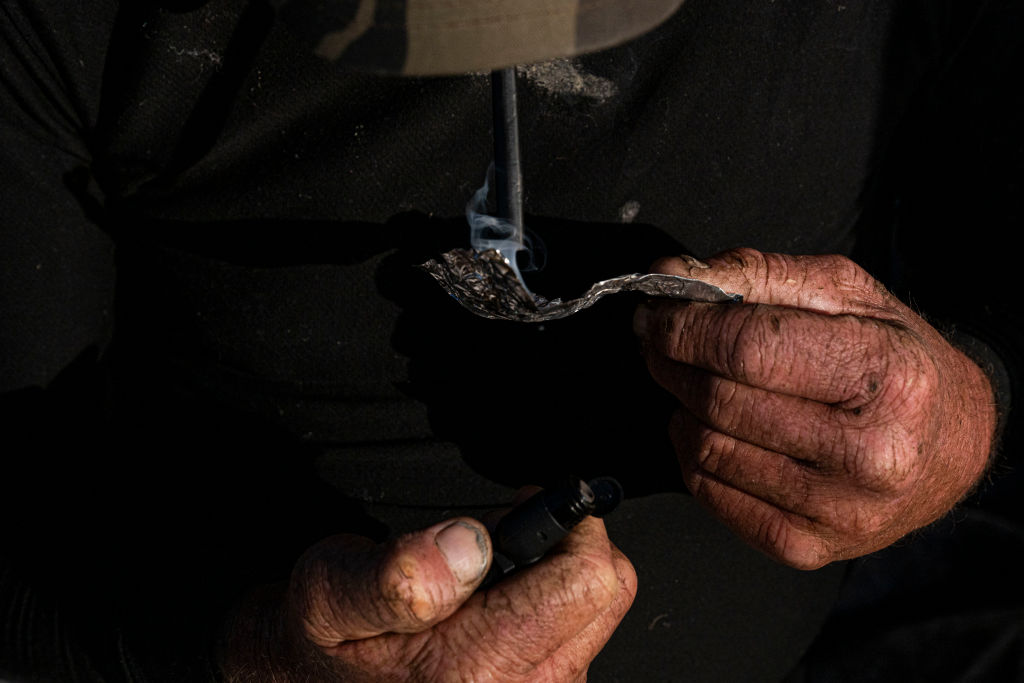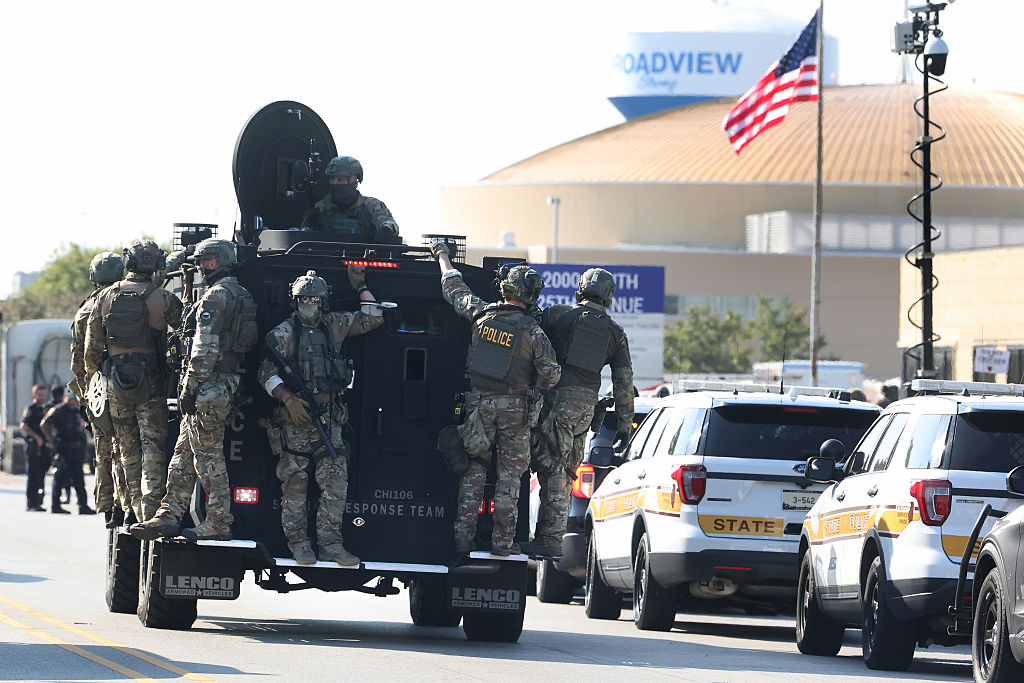SEATTLE — From Roger Baldwin of the ACLU to the Supreme Court’s late Ruth Bader Ginsburg, many Americans have tried to address inequality in the nation’s justice system. Now Washington State’s part-time legislators believe they have discovered a new way.
Later in January, Washington’s state assembly will debate House Bill 1692. If passed, the law would significantly reduce the criminal penalties for the drive-by shootings that have become something of a boom industry here in the Northwest, where violent assaults are up 80 percent on five years ago. It would do so by prohibiting state prosecutors from adding the word “aggravated” to any murder charge involving a perpetrator in a moving vehicle.
The bill is also retroactive, meaning those already found guilty of drive-by violence can expect a reduction in their sentences. And if you happen to have been under twenty-one at the time you committed your offense, you’ll be returned post-haste to court, which will have “full discretion to depart from mandatory sentencing requirements, [and] to take the circumstances surrounding the person’s age and all other factors into consideration,” or, loosely translated, turned loose on the street.
The bill’s primary sponsor, Representative Tarra Simmons, a Democrat, is at least upfront about her intentions. She claims the new law would “promote racial equity in the criminal legal system.” That’s because the vast majority of drive-by violence, in both Washington State and elsewhere, is perpetrated by young black males. Oddly enough, most of their victims are also black. So in the looking-glass world of Washington’s public officials, it’s apparently fine to shoot an African American while you’re out cruising in your customized Dodge Viper on a Saturday night provided you’re the same skin color.
“Murder is murder,” Representative Simmons sagely reminds us. “But locking children up and throwing away the key is not the answer,” she adds, noting that “everyone deserves a second chance in life.” (Other than those mown down from a passing car, presumably.)
Simmons’s own career is certainly a striking example of the generosity of the American spirit. After giving birth to her first child at fifteen and going on to work as a nurse, “I started taking drugs to cope with depression,” she says. “I began with pain pills, then moved on to methamphetamine. And the alcohol abuse that started in my teens got progressively worse.” Arrested three times for selling narcotics and sentenced to thirty months in jail, Simmons emerged to complete a law degree in 2017. Her election to the House three years later is thought to mark the first time a legislative race has been won by a convicted felon in Washington State.
Three points suggest themselves.
First, it’s hard to believe that Washington’s HB-1692 would redress any glaringly obvious anomaly in the law, such as the one that recently sentenced the truck driver Rogel Aguilera-Mederos to 110 years in jail (later knocked down by a century) for inadvertently killing four people on Interstate 70 in Colorado. Prosecutors in Washington only rarely treat drive-by homicide as worthy of an aggravated murder charge, particularly when the shooter in question is under twenty-one. The local cause celebre took place as long ago as 1997, when an eighteen-year-old named Kimonti Carter was involved in a drive-by shooting that left a young college student dead. Both parties in the tragedy happen to have been African American. Carter was sentenced to life without parole, and would presumably be the sort of person brought back for resentencing, if not immediately released, under the terms of HB-1692.
Second, Representative Simmons may just conceivably be motivated by more than mere passing concern about Washington State’s motorized homicide laws. Might she instead be one of those who look about them and see America as an irredeemably racist society, where inequality is an intentional act perpetrated by an effete white elite set upon oppressing a hitherto uncomplaining black proletariat? In what proved to be a busy 2021, the newly-elected Simmons also found time to introduce a bill to restore voting rights for Washington felons, presumably including herself, even if they’re still on parole — again, a matter of “racial justice,” apparently, since black and Indigenous people account for 16 percent of those on parole, but just six percent of the state’s population. Simmons has called Washington’s existing drive-by shooting laws “clearly targeted at gangs that are predominantly young and black.” She argues it’s an example of “systemic racism.”
Third, the major premise of HB-1692 is based upon — let’s be charitable — a misrepresentation. Even Simmons hasn’t so far argued that if you’re black and you shoot someone from your car while in Washington State, you’ll be charged with aggravated first-degree murder, but that if you’re white and you commit the same offense, you’ll get a pass from the system. Even so, there are currently more young black men than there are young white men serving time in Washington prisons for assaulting people from their cars.
What’s going on? Might the answer be less to do with the cherished image of liverish white judges gratuitously jailing black males, and more to do with the cold US Department of Justice statistics showing that young black men are three times more likely to join a violent or potentially violent gang than young white men? So, crudely stated, if there are roughly three times more black men in Washington state prisons for gang-related crimes, drive-by shootings prominent among them, might that be less a case of “systemic racism” and more a sad reflection on larger issues such as the breakdown of the American family and the degradation of society?
Untroubled by any such metaphysical asides, the Washington state assembly this week gets down to the business of debating the terms of Ms Simmons’s initiative. The legislature is currently divided between a radical left majority that’s anti-police, authoritarian and pluralistic in its socialist aspirations, along with a rump of lost-soul Republicans who like to lecture us about the climate emergency and the breakdown of representative democracy. So it’s a fair bet that the bill will duly go on to make its way to the desk of the state’s magnificently self-obsessed Governor Jay Inslee. These are the heirs of Lenin’s useful idiots who will continue, opportunistically, to fight for their vision of America’s future.
And so, incidentally, should we.

























